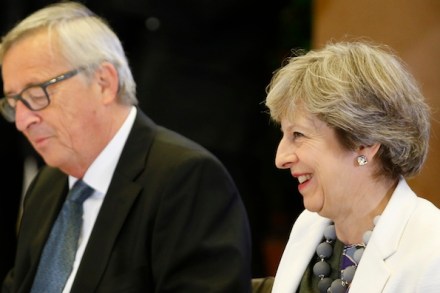May’s disastrous dinner with Juncker: Episode II
Well, that lasted long. Although Theresa May didn’t get the green light to talk trade on her EU council summit charm offensive last week, there was a general consensus that the mood music had at least improved. The EU27 struck a conciliatory and optimistic tone – agreeing to begin internal trade discussions in anticipation of moving to trade talks in December. Angela Merkel even went so far as to say she had ‘no doubt’ a deal would be reached between the EU and Britain. However, it seems that the memo to play nice failed to reach the European Commission. Just as happened the last time May had dinner with Jean-Claude Juncker,




















